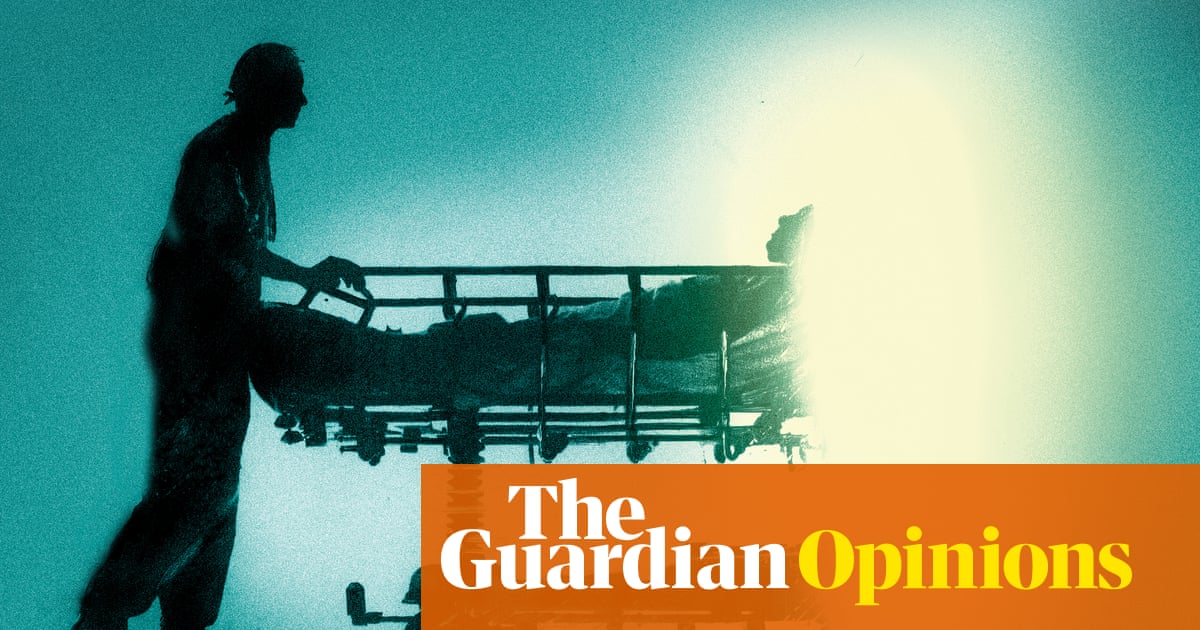We are going through the list of overnight admissions when my phone beeps. Expecting a medical request to do something or see someone, my chest cramps at the message.
I must be sufficiently distracted for the trainee to ask, “All OK?”
It’s a split-second decision. My instinct is to blurt out that an old friend has died and I need time out. But this would inevitably incur an explanation causing the ward round to be consumed by sympathy for me instead of care for our patients.
So, I muster the pretence to say, “Just keep going”, convincing myself this is what Mike would have wanted.
Mike and I met more than 30 years ago. Medical student admissions are a multifaceted thing but I like to think that he was the administrator who “let” me in. More accurately, he was the one who told me years later that after several rounds of offers, there was just one remaining spot and many deserving students but maybe the universe had spoken and I squeezed in.
Getting into medicine would turn out to be the most consequential event of my life.
The next year, Mike gave me my first job, the task of settling the nerves of the medical students who were appearing for their interview like I did once.
It was a decidedly plum job; paid hours, free sandwiches and real orange juice. But even better was Mike introducing me to a fellow student, G.
“I think you will get along” turned out to be a singular understatement when I think about the bounties of our close friendship, which now embraces five children.
Like other students, I stayed in touch with Mike because he was interested in what medical students did with their lives after the coveted degree. He attended my wedding and brought my children thoughtful gifts when he came to dinner. He was there for the celebrations and the lamentations, when they came.
Fifteen years ago, driving home from a routine work day, Mike suffered a devastating stroke. I remember dashing to intensive care where he was expected to succumb. Miraculously and, in part, due to his relatively young age, he survived every complication and was discharged to the stroke unit, the place of my worst memories. Here, Mike was often insensate and when awake had no meaningful use of limb or language. The nurses were caring but the loss of his dignity was scathing. I would sit there stunned by the blow of fate, hoping he recognised me.
Defying predictions, Mike not only survived his hospital ordeal but also emerged largely cognitively intact. However, his physical needs necessitated admission to a nursing home.
My standout memory from the nursing home was that his only window to the outside had an opaque coating. It made him miserable and even the staff couldn’t explain its existence as it was not related to privacy.
Over months, Mike and I appealed to the management to allow him a glimpse of the sun, sky and trees, all in vain.
After that dashed hope, I resorted to simpler ways of “helping” by asking what kind of sushi he wanted. At least, that was always under our control.
But we never stopped talking about his desire to get out of the nursing home. In service of his dream, he was diligent with physiotherapy and continued to train his brain. I knew plenty of people who yearned to leave residential care but none successfully. It took the best part of two years and a mountain of paperwork and advocacy from his valiant sister to get Mike back into his own home. That was a remarkable day.
With sophisticated modifications and dutiful caregivers, Mike’s life was again illuminated by friends, theatre, and current affairs. When we visited him and found him content, I told my children that Mike’s transformation was also a testament to a society which had painstakingly restored dignity to an individual in circumstances where it would have been far easier to let him languish in residential care. This really was exemplary disability care in the community.
I found it especially instructive to witness the loyalty of his childhood friends whose interest in him seemed unaffected by his limitations. They were a living reminder of the adage that if you have one true friend you have more than your fair share.
As Mike acquired a social life, our interactions slowed. But I was always delighted when he couldn’t see me because he had other plans – there had been many intervening years of drought.
Some weeks ago, I sent him an email proposing lunch, never imagining that it would only be read by his sister undertaking the heartache of posthumously sifting through his affairs. Now she tells me that Mike, after enjoying a holiday, presented to hospital with sudden and fatal deterioration. There had been no time to let anyone know that he was dying.
It is difficult for me to absorb the shock all at once but Mike’s sister says something very generous – that in his years of greatest need, I was like a daughter to him. I will never know it for sure, but the thought itself is a lovely consolation.
Mike was one of the people who derived personal satisfaction from my enjoyment of medicine. My friend, G, became a role model for honouring our relationships despite the demands of life.
Who would understand the significance of this sudden loss? G is the first person I text.
I picture Mike’s satisfaction that the two of us, brought together by him, stop to reflect on a life and legacy that couldn’t have been scripted, at least not by two doctors.
Ranjana Srivastava is an Australian oncologist, award-winning author and Fulbright scholar. Her latest book is called A Better Death
